Disclaimer: This blog post contains affiliate links. If you make a purchase through these links, I may earn a small commission at no additional cost to you. Learn More. Thank you for supporting our garden community.
Fertilizing Lawns in Summer
Summer is a time when lawns are subject to heat stress, drought, and increased foot traffic from outdoor activities. To maintain a healthy and vibrant lawn during this season, proper fertilization is crucial. In this blog post, we will discuss the importance of fertilizing lawns in summer and provide tips to help you achieve a lush green lawn.
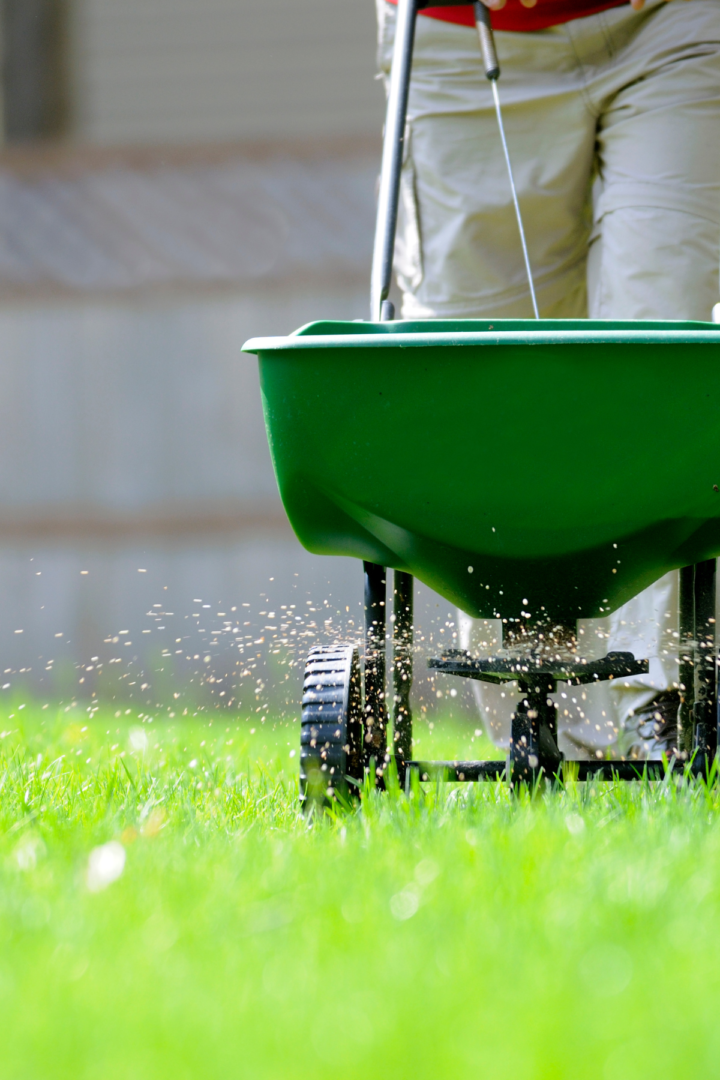
For those who cultivate a lawn of their own, you know that the ‘curb appeal’ can only be achieved with the right fertilization techniques.
Fertilizing Lawns in Summer
This post discusses the reasons why fertilizing lawns in summer is crucial for maintaining a healthy lawn. You will learn when to fertilize your lawn based on the type of grass you have, the importance of choosing the right fertilizer with a balanced NPK ratio and a slow-release formula.
You will also learn how to fertilize your lawn effectively using a spreader and by following the tips provided in this post.
Why Fertilize Your Lawn in Summer?
Fertilizing your lawn in summer is essential due to the unique challenges that this season poses to your grass. The combination of increased heat, sunlight, and foot traffic can deplete the nutrients present in the soil, leaving your lawn vulnerable to stress and damage.
By fertilizing your lawn in summer, you are providing it with the essential nutrients it needs to maintain its health and vigor during the harsh summer conditions. A well-fertilized lawn will have a stronger root system, improved resistance to pests and diseases, and better overall color and density, making it more capable of withstanding the challenges of the summer season.
Investing in the proper fertilization of your lawn can help ensure that it remains lush, green, and beautiful throughout the summer months, enhancing the curb appeal of your property and creating a welcoming outdoor space for you and your family to enjoy.
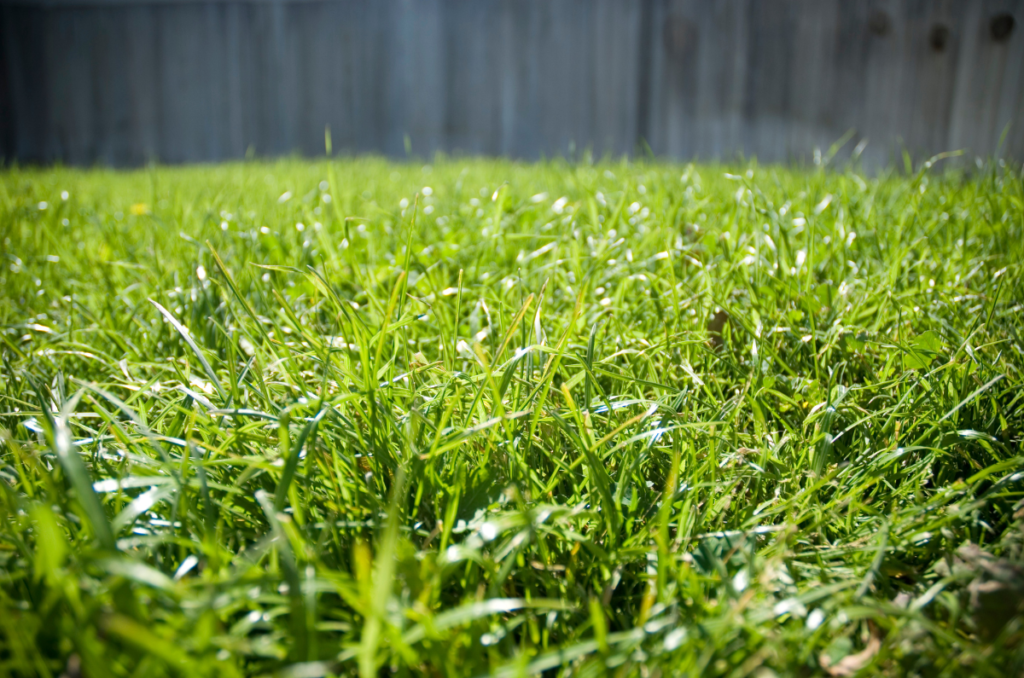
When to Fertilize Your Lawn
When deciding when to fertilize your lawn in summer, it’s important to consider the type of grass you have. Warm-season grasses such as Bermuda, Zoysia, and St. Augustine should be fertilized in late spring or early summer. Cool-season grasses like Kentucky bluegrass and fescue are best fertilized in early summer to ensure they have enough nutrients to thrive during the hot months.
On the other hand, if are growing ornamental grass, check out our full guide on growing tall ornamental grass.
Choosing the Right Fertilizer
When selecting a fertilizer for your lawn in summer, choose one with a slow-release formula. Slow-release fertilizers provide a steady supply of nutrients to your lawn over an extended period, reducing the risk of burning your grass during hot weather. Look for a fertilizer with an NPK ratio of about 4-1-2 (4% nitrogen, 1% phosphorus, and 2% potassium, by weight), to ensure your lawn gets the best ratio of macronutrients.
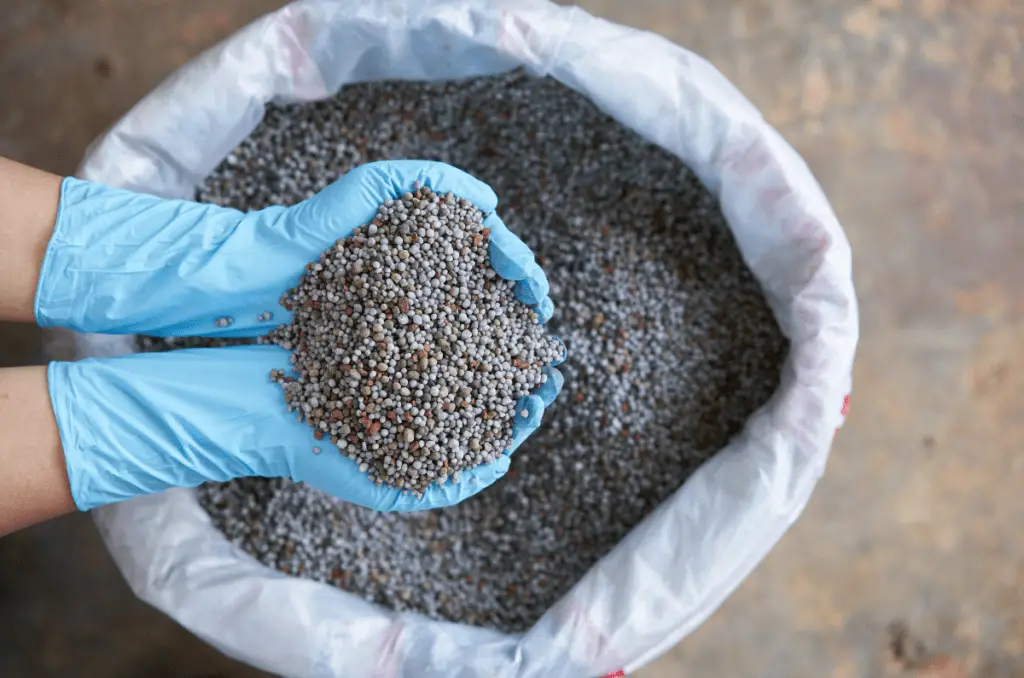
In a situation of lawn fertilization, nitrogen is needed the most for green, leafy growth, and phosphorus is needed the second most for robust root development.
Additionally, you should choose an organic fertilizer as they provide the essential macro and micronutrients for your lawn. Nutrients like iron (Fe), zinc (Zn), boron (B), and manganese (Mn) are not found in synthetic fertilizers.
The Andersons Home and Garden carries an impressive selection of organic lawn fertilizers tailored to your needs.
How to Fertilize
Here are some tips to help you fertilize your lawn effectively in summer:
- Mow Before Fertilizing: Make sure to mow your lawn a day or two before applying fertilizer. This will ensure that the grass receives the nutrients more effectively.
- Water Before and After Fertilizing: Water your lawn thoroughly a day before applying fertilizer. After fertilizing, water your lawn again to help the nutrients penetrate the soil and reach the grass roots.
- Use a Spreader: To ensure even coverage, use a spreader to distribute the fertilizer across your lawn. Follow the manufacturer’s instructions on the label for the correct application rate.
- Avoid Fertilizing during Heatwaves: It’s best to avoid fertilizing your lawn during extreme heatwaves to prevent the grass from getting stressed. Opt for early mornings or late evenings when the temperature is cooler.
Frequently Asked Questions
The best time to fertilize your lawn depends on your grass type and climate. In general, early summer and fall are considered the safest times to fertilize.
Look for signs your lawn might need nutrients, such as:
– Slow growth
– Thin, patchy areas
– Discoloration of the grass blades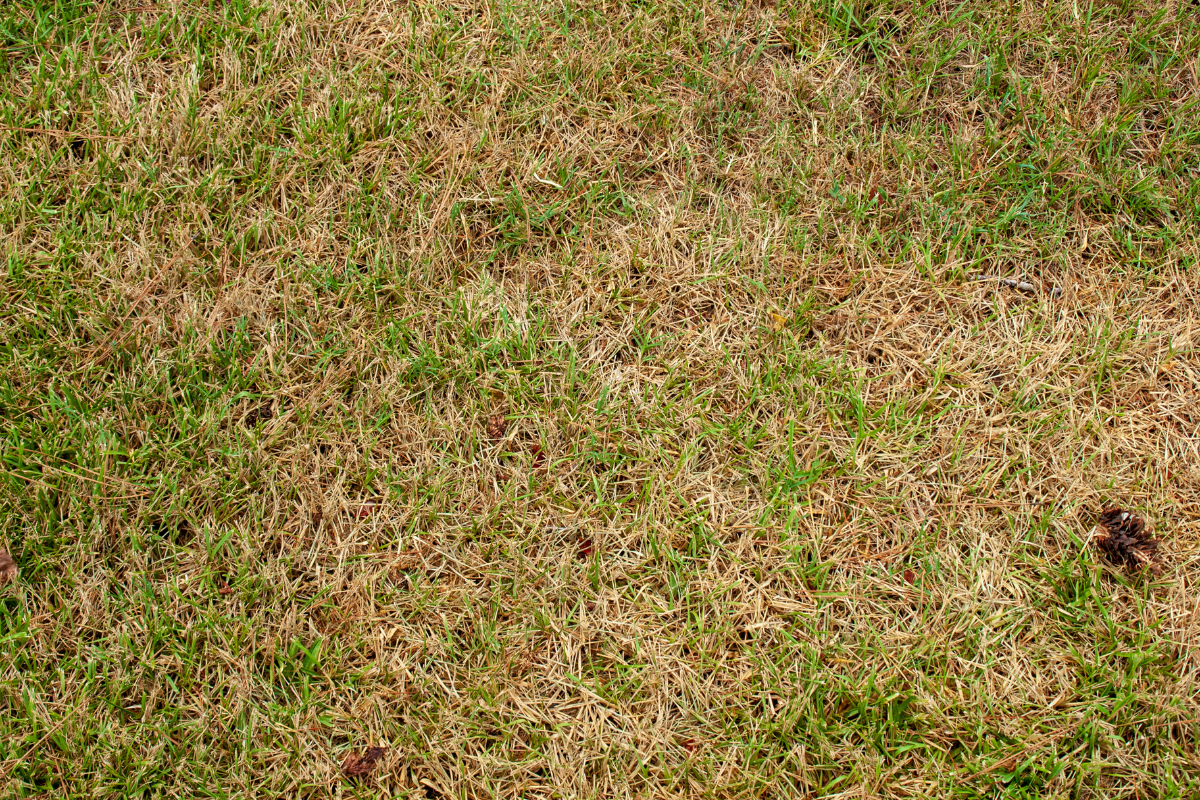
Always follow the instructions and recommendations for any fertilizer product you choose. Look for slow-release fertilizers suitable for your grass type and climate. An NPK of 4-1-2 is generally considered ideal.
Under-fertilizing may not give your lawn the nutrients it needs, but over-fertilizing can be more damaging. When in doubt, it’s safer to start with a less frequent fertilizing schedule and see how your lawn responds.
Even More Gardening Ideas
Here are a few more posts to get the ball rolling in your garden!
Products
For all-purpose organic fertilizers, check out Arber.
To buy organic, non-GMO garden seeds, check out SeedsNow.
For a wide selection of garden plants, check out Nature Hills Nursery.
For gardening equipment, check out Bootstrap Farmer.
Conclusion
Fertilizing your lawn in summer is a crucial step in maintaining a healthy and vibrant lawn. By following the tips mentioned in this blog post, you can ensure that your lawn receives the nutrients it needs to thrive during the hot summer months. Remember to choose the right fertilizer, time the application correctly, and water your lawn adequately to achieve a lush green lawn that will be the envy of your neighborhood.
If you want to learn more about gardening, foraging, nature, and sustainability, check out The Real Gardener on Instagram, YouTube, and Pinterest.
Pin this post for later:

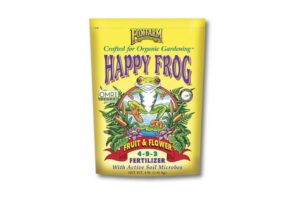







Leave a Reply